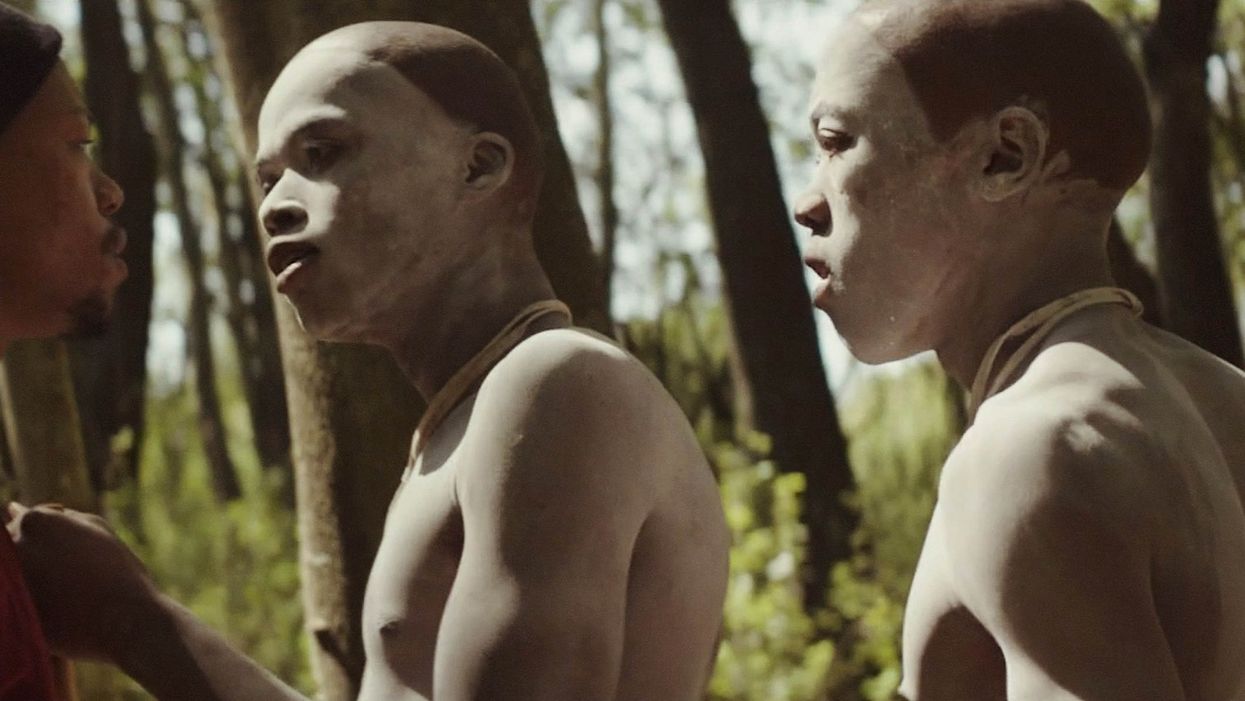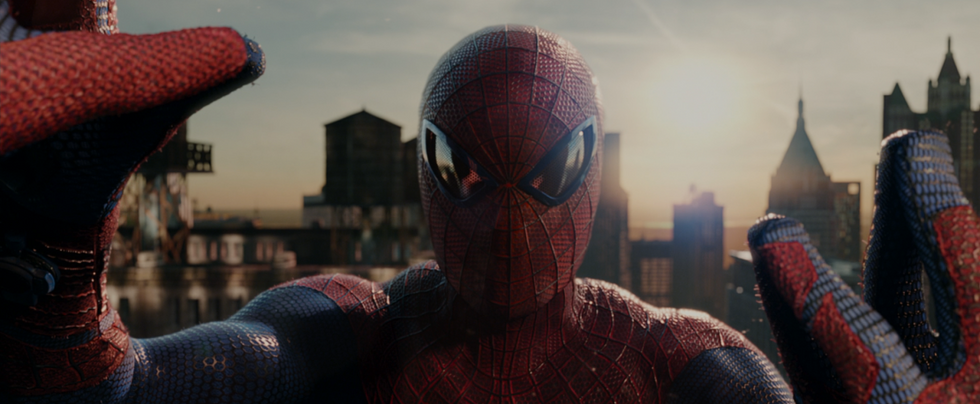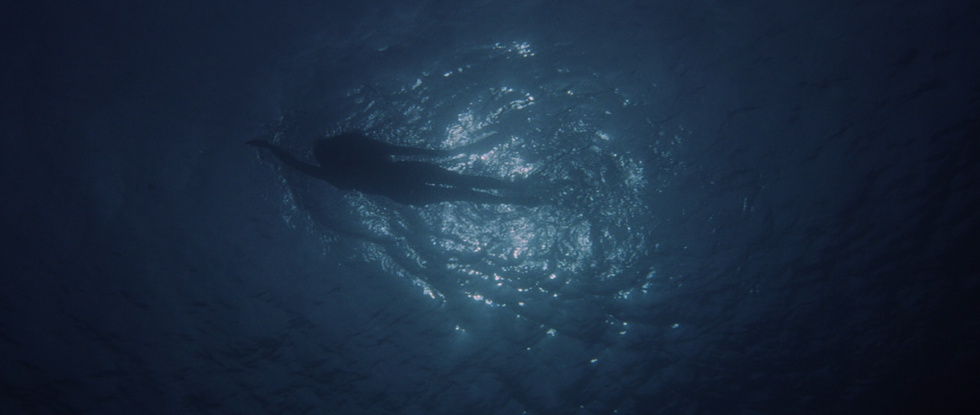Do International Films at Sundance Suggest a Global Growth of Independent Film?
"There's a generation of filmmakers who think we can create something new that the industry isn't doing."

Sundance has traditionally been known predominantly as a showcase of U.S.-based talent, but this year’s fest highlighted people from vibrant film communities across the world. What do they have in common? A passion to make films and build their industries from the ground up. The following excerpts highlight the exciting work being done in South Africa, Brazil, and Bulgaria to give you food for thought. Are we part of a global filmmaker movement towards independent film? See what you think.
The Wound
South Africa

The Wound is set during a traditional Xhosa (South African community) rite of passage for adolescent boys, and Johannesburg-based director John Trengove describes the South African film scene as being both vibrant in work and challenging in funding for taboo subject matter.
"There are a lot of very passionate people doing more and more interesting work in South Africa," says Trengove. "Financing films is potentially challenging, as it is everywhere. I don't want to make it out to be really tough, but our national funder is generally more inclined to finance more commercially oriented films than ours was."
Financing The Wound was even more challenging because of the "contentious" subject matter. Trengrove explains, "It's contentious for two reasons. The ritual itself is taboo, and speaking about it and representing it is a very charged subject. Then added to that, the queer angle made it a contentious project, so people were very aware that we were doing it, but I think there was a lot of apprehension around what we were doing and how we were going to do it. We struggled to raise money locally. We do have a national rebate, which contributes a third of the budget, so we had that." The rest of the film's financing came from international, mostly European film funds, "soThe Wound is essentially a South African, German, Dutch and French co-production because we pieced together the financing of the film from all those different places."
"We really mined the non-traditional, non-professional route, and the rule that we set of ourselves is that every person that we cast had to be Xhosa."
The challenges of creating a local production went beyond financing. "What we found is that a lot of the more established Xhosa actors were not willing to become involved, worrying that there might be some sort of backlash to their participation," recounts Trengrove. "We knew this going in, so we started the casting process more than a year before we actually shot."
Casting director Cait Pansegrouw followed a non-traditional route to casting. "She went on Facebook and connected with people and put, literally, hundreds of young men on camera." Trengrove recalls. "The rule that we set of ourselves is that every person that we cast had to be Xhosa. They had to have gone through the initiation themselves, have a first hand understanding. This was important to me as an outsider that the people on screen to be representing something that was real to them. It was a long process of casting the net very wide, but I think, ultimately, it's something that paid off. We found amazing people to be in the film, not just our leads, and not just our supports, but right down to the extras. The community of men that you see are all Xhosa men."
Don’t Swallow My Heart Alligator Girl!
Brazil

Don’t Swallow My Heart Alligator Girl! takes place on the border of Brazilian state Matto Grosso and Paraguay. A Brazilian co-production, director Felipe Bragança explains that the film is one in a growing movement of young filmmakers rebuilding Brazilian film after a post-dictatorship vacuum.
"Brazil is a huge country, the size of the United States, with all kinds of regional cinemas," says Bragança. "But the big industry is in Rio and Sao Paulo. That's because of the TV. A lot of people work there." The response of Bragnaca and his peers? He describes, "We needed to create another space. I think there is a generation of filmmakers who started studying cinema in 2000-something, who think we could create something new that the industry is not doing. We created our production company to do that. Filmmakers like us think it is possible to create more cultural and free cinema in Brazil if you create companies like ours and find money in Brazil, as well as in Europe and international partnerships. There’s a movement going on that I think you see with more Brazilian national cinemas starting again."
"If we are stubborn, anything can happen."
Until the late 1980's, Brazil's dictatorial government was the country's main source of film financing. "A lot of interesting films were made, in the dictatorship, inside the state, controlled by the state," Bragnaca recalls. "Filmmakers found ways to write something that looked like a two person script, that they would then shoot and change everyone. A lot of really experimental erotic films came from that time, actually. They wrote erotic stories to say, 'Here's a popular film!' But it would really be a veiled political thing."
He explains that when the dictatorship was dissolved in the 1990's, "this big state production company tradition was dissolved together. For like 10 or 15 years, there was no Brazilian film. The idea was unfortunately, if something is bad you just destroy everything. Like Trump style. You find something that you think is a problem, and instead of fixing it, you destroy it."
"I think we are in some way we are lucky to be reconstructing the film industry over the last ten years."
"I think we are in some way we are lucky to be reconstructing the film industry over the last ten years," he says. "Basically, now the scene consists of smaller companies who also make partnerships with some bigger companies. We became film producers, not because we wanted to be, but this is the way to produce our films the way we want. Over the last two, three years we’ve started producing other filmmakers' films, because some people knock on our door and say, 'I want you to produce it!' I'm like, 'OK.' If we are stubborn, anything can happen."
The Good Postman
Bulgaria

The Good Postman follows a small Bulgarian border town in the middle of a mayoral election, as it confronts Europe's growing refugee crisis. Director Tonislav Hristov describes the level of expertise he’s been able to reach after a ten-year career working with Bulgarian National Television, the Finnish Broadcasting Company, and Finnish-based production company Making Movies Oy that have afforded him big and low budget films.
"This is my 6th feature length documentary," says Hristov, "And all of them are the same style, or I've approached them all the same way. So I've learned these tricks in the process of how to make people feel comfortable. You learn that the most important thing is, when you have this sense of fakeness, you stop it right away. You should never continue pushing something that feels fake."
According to Hristov, this advice applies no matter what budget you are working with. "I have gone to Spain to shoot a documentary with a 10,000 Euros budget. It doesn't matter, you just have to deal with the budget you get. And then I have made films with over 600,000 Euros budget. Usually, with the production company I work with, we do a lot of big budget documentaries, and then a small budget on the side. Because big budget films take like two, three years to complete and it's really hard to keep yourself excited for three years."
I have made films with over 600,000 Euros budget. Usually, with the production company I work with, we do a lot of big budget documentaries, and then a small budget on the side.
The Good Postman is one of those on the lower budget scale, but shooting in Bulgaria has its advantages. "15 shooting days in Bulgaria was tight but in other ways shooting a small budget documentary is easier," the filmmaker shares. "You get to use your senses. Also, I would say that in Bulgaria, people haven't been on television that much. Not in fiction or even documentaries, so people don't really know how to act in films. Our film feels really much more like a fiction film. While the people in the small town in Bulgaria we shot still have the initial reaction about the camera, eventually they aren’t as affected because they don’t see it like those of us who are used to seeing films like this."
For more, see our complete coverage of the 2017 Sundance Film Festival.
No Film School's video and editorial coverage of the 2017 Sundance Film Festival is sponsored by RODE Microphones.

 'The Amazing Spider-Man' (2012)
'The Amazing Spider-Man' (2012) 'Jaws' (1975)
'Jaws' (1975)









